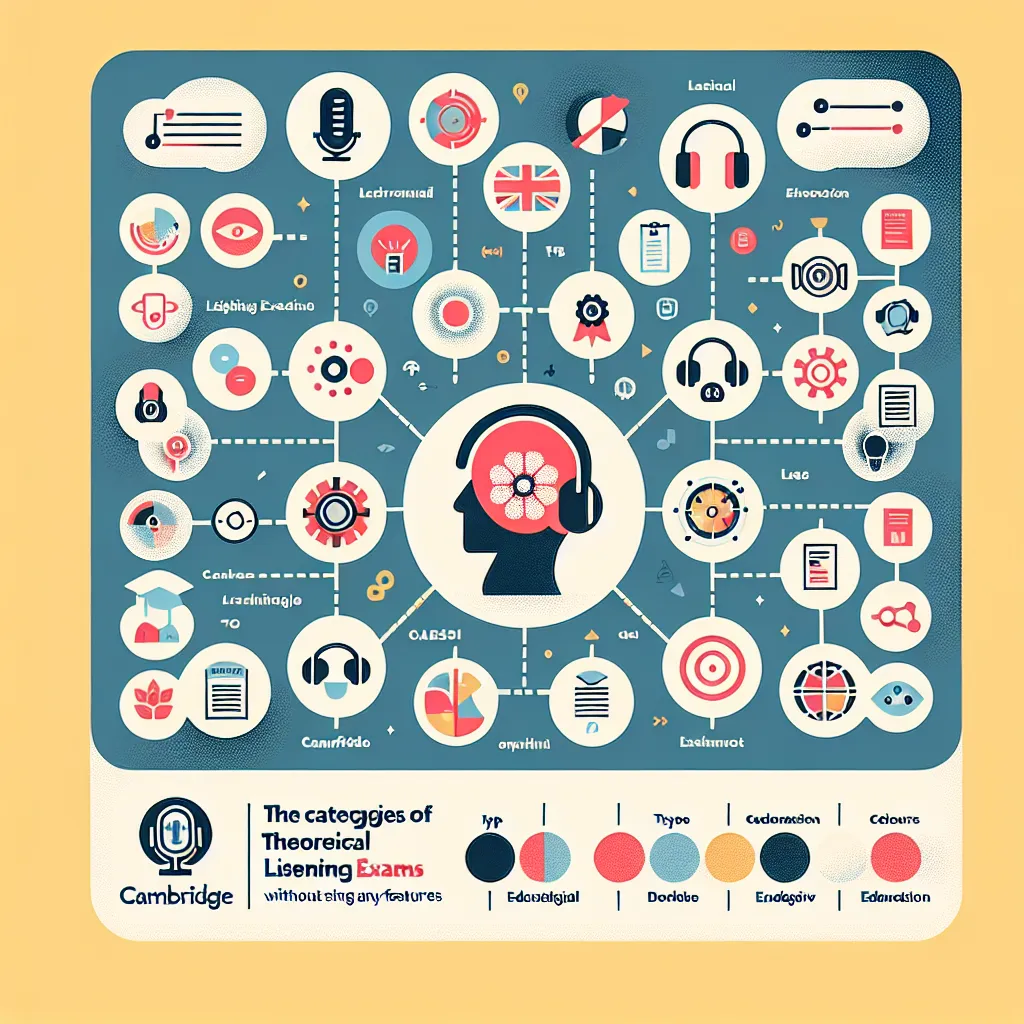Are you preparing for a Cambridge exam and looking to improve your listening skills from the comfort of your own home? You’re in the right place! As an experienced Cambridge exams instructor and content creator, I’ll guide you through effective strategies to enhance your listening abilities and boost your confidence for the exam.
Understanding Cambridge Listening Tests
Before diving into practice techniques, it’s crucial to understand the structure and requirements of Cambridge listening tests. These tests assess your ability to comprehend spoken English in various contexts, from casual conversations to academic lectures.
Types of Cambridge Listening Tests
Cambridge offers several exams with listening components, including:
- B2 First (FCE)
- C1 Advanced (CAE)
- C2 Proficiency (CPE)
- IELTS
Each test has its unique format and difficulty level, but they all aim to evaluate your ability to understand spoken English in real-life situations.
 Cambridge Listening Test Types
Cambridge Listening Test Types
Essential Tools for Home Practice
To effectively practice Cambridge listening at home, you’ll need:
- High-quality headphones
- A quiet study space
- Official Cambridge practice materials
- Online resources and podcasts
- A notebook for taking notes
Investing in these tools will create an optimal learning environment and help you make the most of your practice sessions.
Strategies for Effective Home Practice
1. Familiarize Yourself with Test Formats
Start by thoroughly reviewing the format of your specific Cambridge exam. Each test has its unique structure, question types, and time constraints. Understanding these elements will help you tailor your practice sessions more effectively.
2. Use Official Cambridge Materials
Official Cambridge practice tests are invaluable resources. They provide authentic exam experiences and help you become familiar with the test format, question types, and difficulty level.
[internal_link]Check out our article on “Best Cambridge Exam Preparation Books” for recommended resources.[/internal_link]
3. Create a Study Schedule
Consistency is key when practicing listening skills. Set aside dedicated time each day for listening practice. Even 15-30 minutes of focused practice can make a significant difference over time.
4. Practice Active Listening
Don’t just passively listen to audio materials. Engage with the content by:
- Predicting what you might hear before playing the audio
- Taking notes on key information
- Summarizing what you’ve heard after each listening session
These techniques will improve your comprehension and retention of information.
5. Utilize Online Resources
Take advantage of the wealth of online resources available for Cambridge listening practice:
- YouTube channels with Cambridge exam tips and practice tests
- Podcasts on various topics to improve general listening skills
- Language learning apps with listening exercises
6. Focus on Specific Skills
Identify your weak areas and focus on improving them. Common areas to work on include:
- Understanding different accents
- Identifying main ideas and supporting details
- Following the development of an argument
- Recognizing signpost language
7. Practice Note-Taking
Developing effective note-taking skills is crucial for success in Cambridge listening tests. Practice jotting down key information quickly and efficiently while listening to various audio materials.
 Effective Note-Taking Techniques
Effective Note-Taking Techniques
8. Simulate Exam Conditions
Regularly practice under exam-like conditions to build stamina and reduce test anxiety. Use official practice tests, time yourself, and avoid pausing or replaying audio unless the actual exam allows it.
9. Analyze Your Mistakes
After each practice session, carefully review your answers and analyze any mistakes. Understanding why you made errors will help you avoid similar mistakes in the future.
10. Expand Your Vocabulary
A broad vocabulary is essential for understanding a wide range of topics in listening tests. Regularly learn new words and phrases, particularly those commonly used in academic and professional contexts.
[internal_link]Explore our “Cambridge Exam Vocabulary Building Techniques” article for effective strategies.[/internal_link]
Common Challenges and How to Overcome Them
1. Difficulty with Accents
Solution: Expose yourself to a variety of English accents through podcasts, news broadcasts, and TV shows from different English-speaking countries.
2. Struggling with Speed
Solution: Start with slower audio materials and gradually increase the speed. Use the playback speed settings on YouTube or podcast apps to adjust the pace.
3. Losing Focus
Solution: Practice mindfulness techniques to improve concentration. Break your practice sessions into shorter, focused intervals with brief breaks in between.
4. Trouble with Specific Question Types
Solution: Identify the question types you find challenging and dedicate extra practice time to them. Develop strategies for tackling each question type efficiently.
Next Steps in Your Cambridge Listening Journey
Now that you have a comprehensive guide for practicing Cambridge listening at home, it’s time to put these strategies into action. Remember, consistent practice is key to improvement.
- Start by assessing your current listening skills using an official practice test.
- Create a study plan incorporating the techniques discussed in this article.
- Track your progress regularly and adjust your approach as needed.
- Complement your listening practice with other language skills like reading, speaking, and writing.
[internal_link]Don’t forget to check out our “Cambridge Exam Speaking Practice Tips” for a well-rounded preparation strategy.[/internal_link]
By following these guidelines and maintaining a consistent practice routine, you’ll be well on your way to mastering the Cambridge listening test. Remember, every minute of practice brings you one step closer to achieving your language goals. Good luck with your Cambridge exam preparation!




